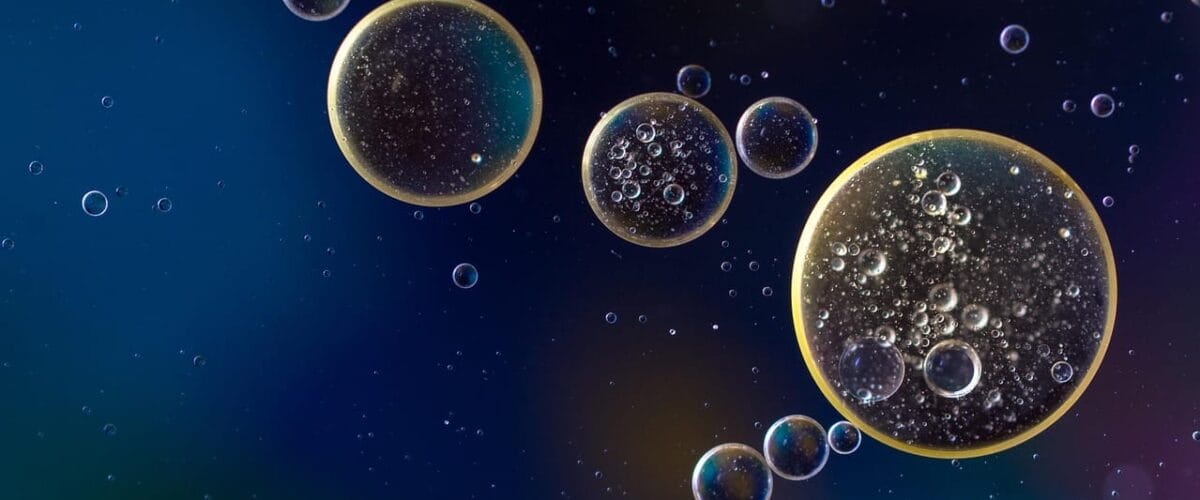Eternity scares me. At first, I can discuss it—albeit in a detached and emotionless way. But eventually my heart starts to pound a little faster, my breathing strains, and the question that I fear the most pings through my mind: How can eternity be good without having an ending?
This paradox scared me for years. And it wasn’t until I read the novella, Stories of Your Life and Others, by Ted Chiang—which inspired a blockbuster film, Arrival—that I began to understand things a little better. If you haven’t watched the film or read the book, there are spoilers ahead.
Both the movie and the story begin with short scenes of a mother with her young daughter—from newborn, to a child, to a back-talking tween. Not long in, though, the movie reveals that this precocious little girl is snatched away by disease just into her teen years. We see this mother again, teaching linguistics at a university. Then they arrive. All over the world, an alien race shows up in hovering ships just like in the movie, Independence Day. Unlike those malevolent predators, however, Arrival’s aliens, named Heptapods because they have seven legs, are not aggressors. Instead, they come on a mission to give their higher form of language to the human race.
Their language is not linear like English. Instead of a sequential order of nouns and verbs, it contains layers of meaning in one symbol. As the main character, the mother-linguist, Louise Banks, learns this language and her thinking begins to change. Because their language is multi-layered, the writer has to know exactly how the sentence (or paragraph) is going to end before it has even begun. Thoughts emerge fully formed rather than broken into segments like our sentences, representing an eerie ability to know ahead of time what we usually figure out piece by piece.
An interesting thing begins to happen to Louise as a result. She begins to see her life in chunks of both past and future. As a viewer of the movie, we think the snapshots we are seeing of her and her daughter are from the past—that she lost her daughter and is somber because of it. But it isn’t until the end that we realize she is actually seeing the future—a future filled with love, but also with the death of her daughter and the end of her marriage. Despite knowing this, she moves forward taking the steps that she’s already seen, regardless of the pain this will involve. Her life is no longer a string of events, as her visions enable her to live her life in layers. She describes it like this:
“Usually, Heptapod B [the alien language] affects just my memory; my consciousness crawls along as it did before, a glowing sliver crawling forward in time, the difference being that the ash of memory lies ahead as well as behind: there is no real combustion. But occasionally I have glimpses when Heptapod B truly reigns, and I experience past and future all at once; my consciousness becomes a half-century-long ember burning outside of time. I perceive—during those glimpses—that entire epoch as a simultaneity.”
The Heptapods lived in the tension of choice and foreknowledge with apparent ease, but I, like Louise, need a new way to look at time. I know that God is outside of time, but introduced to this new language, I am invited to live eternally in the present. This helps me as I consider the loss we experience in life. As I age and my children grow older, every photo is a reminder of something I’ve had, and something I’ve lost. Memories often leave a residue of discontent because I know I will never have that moment back.
Last year, I went home to my birthplace of Bermuda for the first time in ten years, the first time since my father died. Showing my kids my former home, school, and places I’d been with my father was unceasingly hard. I wanted to be immersed in Heptapod B. What if I could experience the moments and the loss of them at the same time like a beautiful symphony that keeps adding layer upon layer?
As I think of eternity, I admit this too is overwhelming, but it is much more promising to me. In this new world, nothing is lost. I can keep the experience as a child with her father and as a grown woman finding love. I don’t have to give up one to experience the other. It is this life’s constant letting go, culminating in death, that makes it so very painful. We get only a taste before it’s gone.
Our promise is that what is gone is not truly lost. And this eternity is really the fullness that I have longed for. And it is in this eternity that my fear of the endlessness will be swallowed up in the glory of experience as God intended.
This is an updated edition of a post originally published on fathommag.com
Featured Image by Vincentiu Solomon




















Comments are closed.